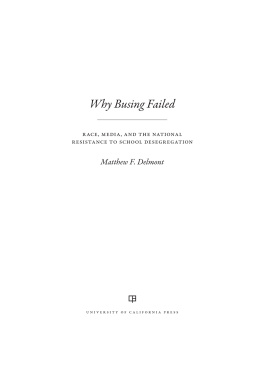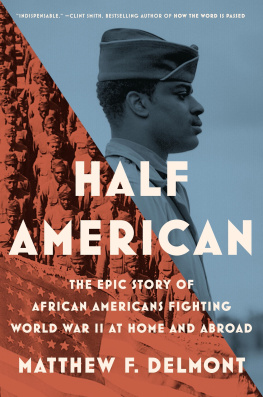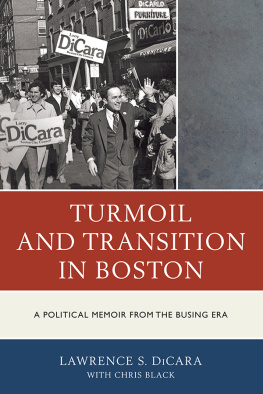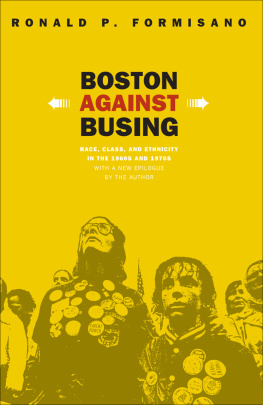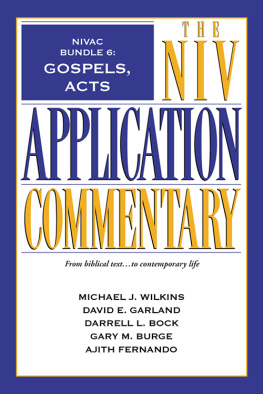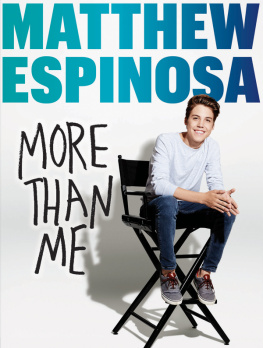Matthew F. Delmont - Why Busing Failed
Here you can read online Matthew F. Delmont - Why Busing Failed full text of the book (entire story) in english for free. Download pdf and epub, get meaning, cover and reviews about this ebook. publisher: University of California Press, genre: Politics. Description of the work, (preface) as well as reviews are available. Best literature library LitArk.com created for fans of good reading and offers a wide selection of genres:
Romance novel
Science fiction
Adventure
Detective
Science
History
Home and family
Prose
Art
Politics
Computer
Non-fiction
Religion
Business
Children
Humor
Choose a favorite category and find really read worthwhile books. Enjoy immersion in the world of imagination, feel the emotions of the characters or learn something new for yourself, make an fascinating discovery.
- Book:Why Busing Failed
- Author:
- Publisher:University of California Press
- Genre:
- Rating:4 / 5
- Favourites:Add to favourites
- Your mark:
- 80
- 1
- 2
- 3
- 4
- 5
Why Busing Failed: summary, description and annotation
We offer to read an annotation, description, summary or preface (depends on what the author of the book "Why Busing Failed" wrote himself). If you haven't found the necessary information about the book — write in the comments, we will try to find it.
Why Busing Failed — read online for free the complete book (whole text) full work
Below is the text of the book, divided by pages. System saving the place of the last page read, allows you to conveniently read the book "Why Busing Failed" online for free, without having to search again every time where you left off. Put a bookmark, and you can go to the page where you finished reading at any time.
Font size:
Interval:
Bookmark:

Edited by Earl Lewis, George Lipsitz, George Snchez, Dana Takagi, Laura Briggs, and Nikhil Pal Singh
The publisher gratefully acknowledges the generous support of the Anne G. Lipow Endowment Fund for Social Justice and Human Rights of the University of California Press Foundation, which was established by Stephen M. Silberstein.
Matthew F. Delmont

UNIVERSITY OF CALIFORNIA PRESS
University of California Press, one of the most distinguished university presses in the United States, enriches lives around the world by advancing scholarship in the humanities, social sciences, and natural sciences. Its activities are supported by the UC Press Foundation and by philanthropic contributions from individuals and institutions. For more information, visit www.ucpress.edu.
University of California Press
Oakland, California
2016 by The Regents of the University of California
Library of Congress Cataloging-in-Publication Data
Delmont, Matthew F., author.
Why busing failed : race, media, and the national resistance to school desegregation / Matthew F. Delmont.
pages cm. (American Crossroads ; 42)
Includes bibliographical references and index.
ISBN 978-0-520-28424-1 (cloth : alk. paper)
ISBN 978-0-520-28425-8 (pbk. : alk. paper)
ISBN 978-0-520-95987-3 (ebook)
1. Busing for school integrationUnited StatesHistory20th century. 2. School integrationMassive resistance movementUnited StatesHistory20th century. I. Title. II. Series: American crossroads; 42.
LC 214.52. D 45 2016
379.263dc23
2015031885
Manufactured in the United States of America
25 24 23 22 21 20 19 18 17 16
10 9 8 7 6 5 4 3 2 1
In keeping with a commitment to support environmentally responsible and sustainable printing practices, UC Press has printed this book on Natures Natural, a fiber that contains 30% post-consumer waste and meets the minimum requirements of ANSI/NISO Z 39.481992 ( R 1997) ( Permanence of Paper ).
AT WHYBUSINGFAILED.COM
Ways to Teach Busing Differently
Video Clips
Images
Selected Research Materials
5 and 6.
31 and 32.
I am fortunate to have received encouragement from family, friends, mentors, and colleagues for as long as I can remember. My mom, Diane Delmont, did an amazing job of raising me, and I am eternally thankful for her love and support. After researching this book, I also appreciate the work she did to navigate the open enrollment system in Minneapolis and the fact that she drove me to Burroughs Elementary School every day.
Thank you also to Frank Bowman, Bobbie and Lindy Stoltz, Katie Stoltz, Leari Jean and Jewel Anderson, and my late grandmother Kaye Henrikson, for their love and support.
Ive found at Arizona State University a wonderful place to teach history and American studies. Thank you to Matt Garcia, Desiree Garcia, Bambi Haggins, Aaron Bae, Karen Leong, Calvin Schermerhorn, Michael Stancliff, Mark Tebeau, Chris Jones, Sujey Vega, Rudy Guevarra, Brianna Theobald, Lee Bebout, Don Fixico, Victoria Thompson, Don Critchlow, Gayle Gullet, Lauren Harris, Laurie Manchester, Anna Holian, Pen Moon, Catherine ODonnell, Katherine Osburn, Jim Rush, Paul Hirt, Phil Vandermeer, and my other colleagues in history and American studies at Arizona State University for discussing my research and helping me strengthen my arguments. Thank you to Alexus Stewart and Corrigan Vaughan for working as research assistants on this project.
Thank you to Dean George Justice, Dean Patrick Kenney, Provost Mark Searle, and President Michael Crow for welcoming me to Arizona State University and for supporting my research.
Niels Hooper, my editor at University of California Press, supported this project from the earliest proposal and encouraged me to frame the book more broadly. Thank you to Bradley Depew and Rachel Berchten for guiding this book through production and to Elizabeth Berg for her careful copy editing. Thank you to Cynthia Savage for preparing the books index. And thank you to Alex Dahne, Elizabeth Shreve, and Kate Pinnick for publicizing the book.
This project started at Scripps College, where I was also fortunate to have excellent colleagues and students. Thanks to Julie Liss, Rita Roberts, Sheila Walker, Bill Anthes, Nancy Neiman Auerbach, Hal Barron, Stu McConnell, Lily Geismer, Damien Sojoyner, Chris Guzaitis, Frances Pohl, Dan Segal, Diana Selig, Victor Silverman, and Claudia Strauss for their collegiality and support. This research benefited from research support at Scripps, for which I would like to thank Dean Amy MarcusNewhall, Associate Dean Gretchen Edwalds-Gilbert, and former President Lori Bettison-Varga. Thank you also to the Scripps students who worked with me as research assistants on this project: Theresa Iker, Jessica Warren, Laurel Schwartz, Emily Horne, Faye Jones, Laura Kent, Ann Kirkpatrick, Alexa Kopelman, Elizabeth McElvein, Kaitlin Morris, Aly Monroe, Claire Pompetti, Laura Rossiter, Ariel Saland, Elisabeth Salzberg, and Colleen Syms.
Thank you to Ed Oetting and Bee Gallegos at ASU library for helping me track down important sources. Thank you to the archivists, librarians, and staff members at the Vanderbilt Television News Archive, University of Georgia Peabody Awards Collection, Lyndon Baines Johnson Presidential Library, Richard Nixon Presidential Library, and State of Florida Archives. Thank you to the Center on the American Governor, Eagleton Institute of Politics at Rutgers University for grant support.
This book has benefited immensely from the feedback of colleagues who read rough drafts of the chapters or heard conference presentations. Jeanne Theoharis, George Lipsitz, and an anonymous reader for University of California Press encouraged me to expand the books scope and to deepen my analysis. Thanks also to Aniko Bodroghkozy, Steve Classen, Phil Ethington, Gillian Frank, Herman Gray, Matthew Lassiter, Victoria Johnson, Lynne Joyrich, Allison Perlman, and Gayle Wald, for offering useful suggestions in different venues.
Thanks to my friends from the Jackal club: Shawn Anderson, Tim Arnold, Victor Danh, Jessie Davis, Jake Ewart, Kara Hughes, Jake Lentz, Ken Miller, and Cabral Williams.
Thank you to Marcia Chatlain and Mario Sifuentez for being friends since graduate school. Seeing you at the American Studies Association conference each fall is one my favorite things about this profession.
Finally, thank you to Jacque Wernimont, Xavier, and Simone for their love.
Busing has been a failure in Boston, the Boston Globe informed readers in 1994, on the twentieth anniversary of the start of court-ordered desegregation in the city. It achieved neither integration nor better schooling. insisting that busing was a failed experiment dominated the debate on school desegregation. The certainty with which so many politicians, parents, and writers described busing as a failure has obscured the history of one of the nations most controversial civil rights issues.
Why Busing Failed reconsiders the history of busing for school desegregation and shows that busing failed to more fully desegregate public schools because school officials, politicians, courts, and the news media valued the desires of white parents more than the rights of black students. This argument requires rethinking the history of busing in three key ways. First, we have to understand how busing became the common-sense way to describe school desegregation. As civil rights advocates continually pointed out, busing was a fake issue. Students in the United States had long ridden buses to school, and the number of students transported to school at public expense in the United States expanded from 600,000 in 1920 to 20,000,000 in 1970. Put more starkly, then, school buses were fine for the majority of white families; busing was not.
Font size:
Interval:
Bookmark:
Similar books «Why Busing Failed»
Look at similar books to Why Busing Failed. We have selected literature similar in name and meaning in the hope of providing readers with more options to find new, interesting, not yet read works.
Discussion, reviews of the book Why Busing Failed and just readers' own opinions. Leave your comments, write what you think about the work, its meaning or the main characters. Specify what exactly you liked and what you didn't like, and why you think so.

